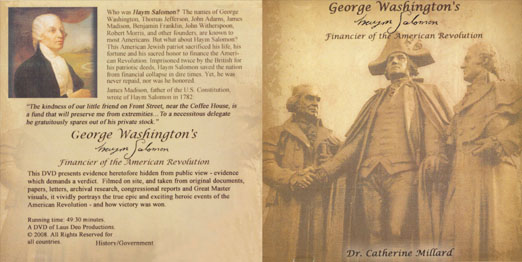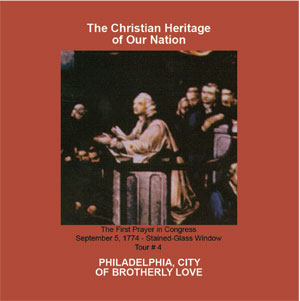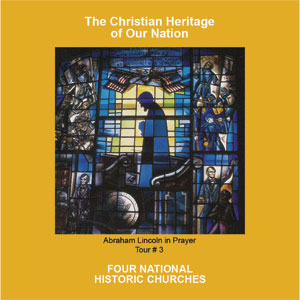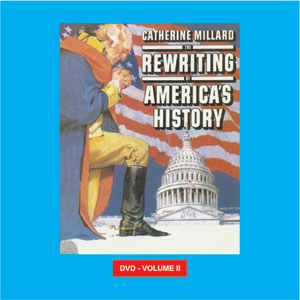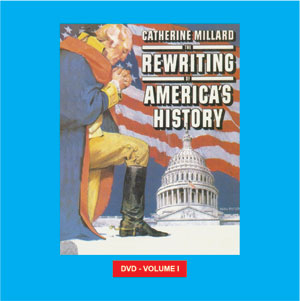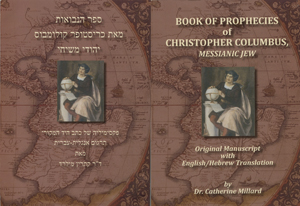Ancient Slavery. Slavery was a recognized feature of early civilizations. The ancient literature of the Chaldeans shows a due regulation of all matters pertinent to slaves. During some periods in Babylonia, many of the slaves were Hebrews, and the Hebrews were also in bondage to the Egyptians. Nevertheless, the Hebrews were slaveholders in their turn. Frequently the bondage was limited in time and character; but sometimes it became lifelong and the slave for life was marked by a hole bored in his ear.
In India the Chandala tribes, assumed to be conquered aborigines, were enslaved by the Hindu invaders. Of these slaves the Hindu law recognized 15 different classes. Early Japanese history also reveals a system of slavery. These slaves appear often to have been low-caste Japanese; but captives taken in war were also held as bondsmen.
Among the Greeks slaves were often prisoners of war as well as natives. Their condition was announced to all men in letters tattooed upon their foreheads in red or blue. The household of a Roman patrician included his slaves over whom he exercised despotic power. The Greek and Roman galleys were rowed by slaves.
The Celts enslaved their Saxon captives, and the Saxons retaliated by enslaving Celts. The serfs of early Britain were obliged to wear a metal collar inscribed with their own and their masters’ names, a usage which continued in Scotland down to the 18th century in connection with those condemned by the state to be perpetual servants of their masters.
African Slavery. The great development of the African slave trade in the 18th century put an end to the slave traffic in white persons. Negro slavery is ancient in the Old World, and it spread into the newer lands discovered and colonized in the 15th century and afterward. But it reached its height in the 18th century.
African slavery was introduced into the English colonies in America by the British Crown in 1619, and for some years the institution spread slowly. With the great development in tobacco growing, importation became rapid, and by 1740 about 140,000 Negro slaves had been imported into the British American colonies. At first the status of Negro slaves was similar to that of indentured servants, except the former were bound for life. Before the end of the 17th century the status of slaves had been established by British law. The property rights of the master to his slave were practically absolute. Several of the colonial legislatures endeavored by duties and prohibitions to abolish slavery and restrict further importation.
Attempts of America’s Founders to Free the Slaves
Thomas Jefferson, delegate to the House of Burgesses in Williamsburg, Capital of the British Colony of Virginia, was a staunch anti-slavery advocate. In 1774 he delivered his A Summary View of the Rights of British America set Forth in Some Resolutions intended for the Inspection of the Present Delegates of the People of Virginia now in Convention, by a Native, and Member of the House of Burgesses. It outlines the grievances of the colonies against England, as excerpted below:
…The abolition of domestic slavery is the great object of desire in those colonies, where it was unhappily introduced in their infant state. But previous to the enfranchisement of the slaves we have, it is necessary to exclude all further importations from Africa; yet our repeated attempts to effect this by prohibitions, and by imposing duties which might amount to a prohibition, have been hitherto defeated by his majesty’s (the King of England)* negative: Thus preferring the immediate advantages of a few African corfairs (slaves)* to the lasting interests of the American states, and to the rights of human nature deeply wounded by this infamous practice…1
However, such restrictive laws were disallowed by the British government as prejudicial to the British merchants engaged in slave trade. At the time of the Revolutionary War, a strong sentiment against slavery existed both in the North and the South, owing to the enthusiasm for freedom created by the Declaration of Independence. The latter contained a 28th Clause – Jefferson’s anti-slavery clause. It reads as follows:
He (the King of England)* has waged cruel war against human nature itself, violating its most sacred rights of life and liberty in the persons of a distant people who never offended him, captivating and carrying them into slavery in another hemisphere, or to incur miserable death in their transportation thither. This piratical warfare, the approbrium of infidel powers, is the warfare of Their Underliving King of Great Britain. Determined to keep open a market where MEN should be bought and sold, he has prostituted his negative for suppressing every legislative attempt to prohibit or to restrain this execrable commerce. And that this assemblage of horrors might want no fact of distinguished die, he is now exciting those very people to rise in arms among us, and to purchase that liberty of which he has deprived them, by murdering the people on whom he also obtruded them; thus paying off former crimes committed against the liberties of one people with crimes which he urges them to commit against the lives of another. (see original, attached)
Jefferson’s anti-slavery clause was struck out by Congress, due to the fact that some southern states would have dropped out of the 13 original states needed to pass the Declaration of Independence.
After the Declaration, Jefferson was free to initiate a bill in Congress, which he did in 1779, proposing an attempt to deal with the slavery issue, as follows:
The bill on the subject of slaves was a mere digest of the existing laws respecting them, without any intimation of the plan for a future and general emancipation. It was thought better that this should be kept back, and attempted only by way of amendment, however the bill should be brought on. The principles of the amendment however were agreed on, that is to say, the freedom of all born after a certain day, and deportation at a proper age. But it was found that the public mind would not yet bear the proposition, nor will it bear it even at this day. Yet the day is not distant when it must bear and adopt it, or worse will follow…It is still in our power to direct the process of the emancipation and deportation peaceably and in such slow degree as that the evil will wear off insensibly and their place be pari passu (slowly but surely)* filled with free white laborers. If on the contrary it is left to force itself on, human nature must shudder at the prospect held up…Commerce between master and slave is despotism…Establish the law for educating the common people, this it is the business of the state to effect and on a general plan.2
In 1778 Virginia prohibited further importation of slaves, and by 1790 most of the other states had done likewise.
George Mason took an active part in the Constitutional Convention, meeting in Philadelphia in 1787. He spoke strongly against slavery. James Madison wrote the following report concerning Mason’s speech on slavery, as follows:
This infernal traffic originated in the avarice of British merchants. The British government constantly checked the attempts of Virginia to put a stop to it. The present question concerns not the importing States alone, but the whole Union…Slavery discourages arts and manufactures. The poor despise labor when performed by slaves. They prevent the emigration of whites, who really enrich and strengthen a country. They produce the most pernicious effect on manners. Every master of slaves is born a petty tyrant. They bring the judgment of Heaven on a country. As nations cannot be rewarded or punished in the next world, they must be in this. By an inevitable chain of causes and effects, Providence punishes national sins by national calamities. He (George Mason) lamented that some of our eastern brethren had, from a lust of gain, embarked in this nefarious traffic….He held it essential in every point of view, that the General Government should have power to prevent the increase of slavery.
Mason wrote that, “Under the coalition, the great principles of the Constitution were changed in the last days of the Convention.” This founding father refused to sign the Constitution, because of Congress’ exclusion of the anti-slavery issue. This they did, as some southern states would have dropped out of the union.
The Abolition of Slavery
As early as 1760 the Quakers in Pennsylvania objected to slaveholding and trading. In 1774 an abolition society was formed in Pennsylvania. One of the most notable accomplishments in the life of founding father Benjamin Franklin was his work against slavery. He organized and became President of the world’s first anti-slavery society, the Pennsylvania Society for Promoting the Abolition of Slavery. He wrote the first remonstrance against slavery, which was presented to the Congress of the United States.3 Within a few years similar societies were in existence in other parts of the North. These societies looked toward the gradual emancipation of the slaves, with compensation to the masters; and their activities aroused no hostility, even among the slaveholders. A popular plan of the early ABOLITIONISTS was the colonization of freed Negroes in Africa; and in 1821, under U.S. President James Monroe, a colony of liberated slaves was started in Cape Mesurado, Africa. This grew in numbers, and in 1847, it declared itself an independent republic under the name of LIBERIA.
Abraham Lincoln’s Emancipation Proclamation, signed on September 22, 1862 and enacted on January 1, 1863, declared all slaves in the seceding states free. West Virginia had already incorporated in its constitution provisions leading to gradual emancipation; in 1863 Missouri, and a year later Maryland, made provisions for emancipation. In 1865, slavery was abolished throughout the United States by the Thirteenth Amendment.
In 1782 a movement was started in England by Thomas Clarkson and William Wilberforce for the abolition of the slave trade. In 1792 a motion was passed in the House of Commons for the gradual abolition of slave trade. In 1805 slave trade with new colonies was forbidden and two years later the General Abolition Bill was extended to all the British colonies. However, only in the passing of King William IV’s Emancipation Act of 1833, was slavery abolished in Great Britain and colonies.4
In the British West African colonies of the Gold Coast and Nigeria, freedom was gradually secured for all slaves, but in the Sierra Leone colony a similar step was not taken until 1928.
To learn more, click here.
___________________________
Bibliography:
1
Jefferson, Thomas. A Summary View of the Rights of British America, set forth in some Resolutions intended for the inspection of the present Delegates of the people of Virginia, now in Convention. By a native, and member of the House of Burgesses. Williamsburg: Printed by Clementinarind, 1774, pp. 15-16.
2
Jefferson, Thomas. Autobiography. Original in the Library of Congress Rare Manuscript Division, Washington, D.C.
3
The Encyclopedia Americana. (Vol. 18) New York: Americana Corporation, 1940, pp. 380-381.
4
Ibid. (Vol. 12), pp. 8-12.
* Author’s words in parentheses.

